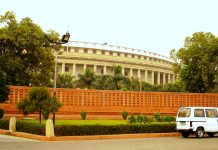This article is written by Samriddhi, from Symbiosis Law School, Noida. This article analyses the developments made in India since the time of the 15th Finance commission.
Table of Contents
Introduction
The Finance Commission is a constitutionally mandated agency that oversees fiscal federalism. Its primary responsibility, as outlined in Article 280 of the Constitution, is to assess the health of the Union’s and state government’s finances, advocate tax sharing between them, and spell down the principles governing the allocation of these taxes among states.
Its operation is marked by broad and thorough consultations with all levels of government, reinforcing the cooperative federalism principle. Its ideas also aim to improve the quality of government spending while simultaneously maintaining budgetary stability. The first Finance Commission was established in 1951, and there have since been a total of fifteen. A unique set of challenges have been faced by all of them.
Challenges faced by the 15th Finance Commission
The Fifteenth Finance Commission was established on November 27, 2017, in the wake of the demise of the Planning Commission (as well as the distinction between Plan and non-Plan expenditure) and the implementation of the Goods and Services Tax (GST), 2017, which has fundamentally altered the fiscal federal relations.
The present Commission’s terms of reference include:
- Suggesting monitorable performance criteria for significant national flagship programs and investigating the potential of establishing a permanent non-lapsable funding mechanism for India’s defence needs.
- The division of Jammu and Kashmir into two Union Territories — one for Jammu and Kashmir and the other for Ladakh – has created a new dynamic. In general, the Finance Commission is confronted with new issues as our federal polity evolves.
- The Commission, as an essential constitutional agency, is dedicated to balancing competing claims and goals across the three tiers of government in a credible manner.
The 15th Finance Commission, which recently submitted its report to the President of India, has had a long and tumultuous tenure. While the Commission’s conclusions have not yet been made public, it has faced several difficult issues, with the COVID-19 pandemic adding to its workload in the final year.
Reviewing the higher tax devolution to states
A Finance Commission’s primary responsibility is to recommend the tax devolution formula or the share of central taxes that each state is entitled to. The 14th Finance Commission advocated a ten-point increase in tax devolution to states, bringing the total to 42 percent. The 15th Finance Commission’s mandate was to review “the impact on the Union Government’s fiscal situation of substantially increased tax devolution to States following the 14th Finance Commission’s recommendations.”
This raised fears that the tax devolution to states will be changed.
The Commission left the devolution formula essentially untouched in its interim report for 2020-21 but amended 1 percentage point for proceeds to Jammu & Kashmir and Ladakh after the State was partitioned into two Union Territories. The remaining 41% was distributed to the other states.
According to NR Bhanumurthy, Vice-Chancellor of Bengaluru Dr. BR Ambedkar School of Economics, the portion of devolution can be reduced from 41 percent so that the Centre can enhance capital investment to revive economic growth. He believes that the focus should be on reducing the revenue deficit, which will aid in the creation of additional capital assets and, as a result, increase growth.
The population question
The Commission was quickly embroiled in controversy, with southern Indian governments claiming that their efforts to restrict population would work against them. This is because the 15th Finance Commission’s terms of reference included using the 2011 census to advise tax devolution to states.
To be sure, its predecessor, the 14th Finance Commission, had similarly given the 2011 population a 10% weighting while advocating for tax devolution to states. This was done in order to better “represent the demographic changes that have occurred since 1971.”
While using 2011 census data, the 15th Finance Commission noted in its interim report for 2020-21 that it tried to address concerns of southern states by suggesting a new performance-based criterion called “Demographic Performance,” which measures the total fertility rate of all states.
M Govinda Rao, a member of the 14th Finance Commission, stated that public services must be supplied to the entire population and that the most recent data should be used in establishing such estimations. Finance Commissions can tweak weightages for different norms to find the correct balance, ensuring that better-performing states don’t lose out too much while poorer states get the assistance they need, according to Bhanumurthy.
New defence fund
The terms of reference for the 15th Finance Commission were changed after they were first released to look into the possibility of a separate mechanism for funding defence and internal security. This has fueled speculation that states will be required to contribute to such a fund, resulting in a reduction in their share of federal taxes.
If states are forced to contribute to such a fund, Bhanumurthy believes it will put pressure on transfers to states. Other payments to states, including as grants, would compensate for this, he said. “There is benefit in guaranteeing a predictable and stable flow of funding for defence and internal security,” the 15th Finance Commission noted in its interim report, “and this will receive adequate consideration in our final report,” Rao claims that a non-lapsable fund can be created through monetizing the Ministry of Defence’s enormous landholdings and assets, as well as divesting stakes in defence public sector businesses.
This suggestion was also given to the 15th Finance Commission by its economic advisory council.
Focus on health
The COVID-19 epidemic has brought healthcare to the forefront. Despite the fact that the 14th Finance Commission did not recommend sector-specific allocations for health, education, drinking water, or sanitation, the 15th Finance Commission’s initial report stated that India should aim to spend 2.5 percent of its GDP on healthcare.
The Commission recommended that the Union Ministry of Health and state governments work together to prepare for the establishment of medical colleges at district hospitals with more than 100 beds. It also suggested that district hospitals be used as training sites for allied health workers so that state-specific funding, which was proposed in the final report, may be used to their full potential.
With the world’s deadliest virus revealing the terrible status of India’s healthcare system, the 15th Finance Commission may prioritize rebuilding health facilities.
The broader fiscal question
The 14th Finance Commission recommended that the federal government’s fiscal deficit be reduced to 3% of GDP in 2016-17. The Commission believed that faster growth may be attained as a result of direct and indirect tax measures such as the GST. The Commission also demanded that the revenue shortfall be rectified entirely by 2019-20. The budget deficit in each state was set at 3% of GDP.
These objectives were unreachable. In its interim report, the 15th Finance Commission stated that meeting the fiscal deficit target of 3.3 percent for 2019-20 would be difficult and that the Central government could use the escape clause in the amended Fiscal Responsibility and Budget Management Act (2003) to deviate from the target by 0.5 percent. This recommendation has been adopted by the government.
In 2019-20, the country’s fiscal deficit was 4.6 percent. Due to a substantial drop in revenues during the COVID-19 pandemic and the lockdown implemented to stop the virus from spreading, India’s fiscal deficit is likely to rise in the current fiscal year.
In this context, the 15th Finance Commission’s fiscal deficit recommendations will be made.
The Committee’s chairman, N.K. Singh, previously stated that instead of a number, the Commission may look at a target range for the fiscal deficit, which would be more in line with India’s monetary policy. According to Bhanumurty, the pandemic’s unforeseen risks are so great that the budget deficit aim should be set in a range. The fiscal deficit objective would then be in line with the inflation target’s flexibility. He went on to say that the fiscal deficit target would thus be consistent with the flexible inflation targeting approach.
Almost all Finance Commissions have struggled to make projections during their tenure due to uncertainty, according to Bhanumurthy. The GST for the 14th Finance Commission and the Pay Commission awards for the 12th Finance Commission were the sources of doubt. He stated that finance commissions are not immune to shocks. “Had the 15th Finance Commission presented its report on time last year, its estimates would have been obsolete by now,” he continued.
According to Abhijit Sen, a member of the 14th Finance Commission, the existing environment makes it difficult to carry out the finance commission’s primary role of calculating revenue and spending for the next five years. Because of the uncertainty caused by COVID, no one knows where the economy will be in a year.
“It has never happened that the estimates of the Finance Commission have hit the target,” Rao stated. One method to address the current scenario is to evaluate the circumstances prior to the epidemic and generate projections based on nominal growth while ignoring the disruption caused by COVID-19. This would aid in establishing a foundation, he added, adding that the recovery phase from next year forward must also be considered.
Another option, according to Lekha Chakraborty, a professor at the National Institute of Public Finance and Policy, is to assume year-on-year differential nominal GDP growth during the award period. COVID-19-induced uncertainty will be mitigated by different growth rates, she suggested.
Conclusion
Some major changes came through with the 15th Finance Commission. Even though the 14th Finance Commission’s recommendations changed the landscape of fiscal federalism in India with its landmark recommendations that would have increased state fiscal autonomy, states in India have had to adjust to resources that were much lower than estimated. This will most likely remain the case in the post-pandemic recovery period as tax revenues pick up, albeit slowly. As a result, the divisible pool of taxes may itself shrink due to a lower than expected share of tax devolution despite the optimistic GDP growth estimates made by the 15th Finance Commission.
If states have less and less autonomy over their resources, then recovery from the pandemic, with very little fiscal room, will be very slow. Crucial spending on capital may suffer due to this, resulting in longer-term disruptions to sub-national economic growth and higher inequality among states.
References
- https://fincomindia.nic.in/
- https://indiankanoon.org/doc/559924/
- https://www.gst.gov.in/
- https://www.business-standard.com/article/economy-policy/finance-commission-keeps-tax-devolution-for-states-at-41-in-fy22-121020101805_1.html
- https://www.business-standard.com/article/economy-policy/considering-fiscal-deficit-range-instead-of-number-says-n-k-singh-120090500067_1.html
- http://www.firstpost.com/business/finance-commission-suggestions-will-serious-effects-says-abhijit-sen-dissent-note-2119049.html
- https://indianexpress.com/article/opinion/columns/india-economy-rbi-monetary-policy-gdp-growth-msme-sector-7221515/
Students of Lawsikho courses regularly produce writing assignments and work on practical exercises as a part of their coursework and develop themselves in real-life practical skills.
LawSikho has created a telegram group for exchanging legal knowledge, referrals, and various opportunities. You can click on this link and join:
https://t.me/joinchat/J_0YrBa4IBSHdpuTfQO_sA
Follow us on Instagram and subscribe to our YouTube channel for more amazing legal content.
 Serato DJ Crack 2025Serato DJ PRO Crack
Serato DJ Crack 2025Serato DJ PRO Crack










 Allow notifications
Allow notifications


